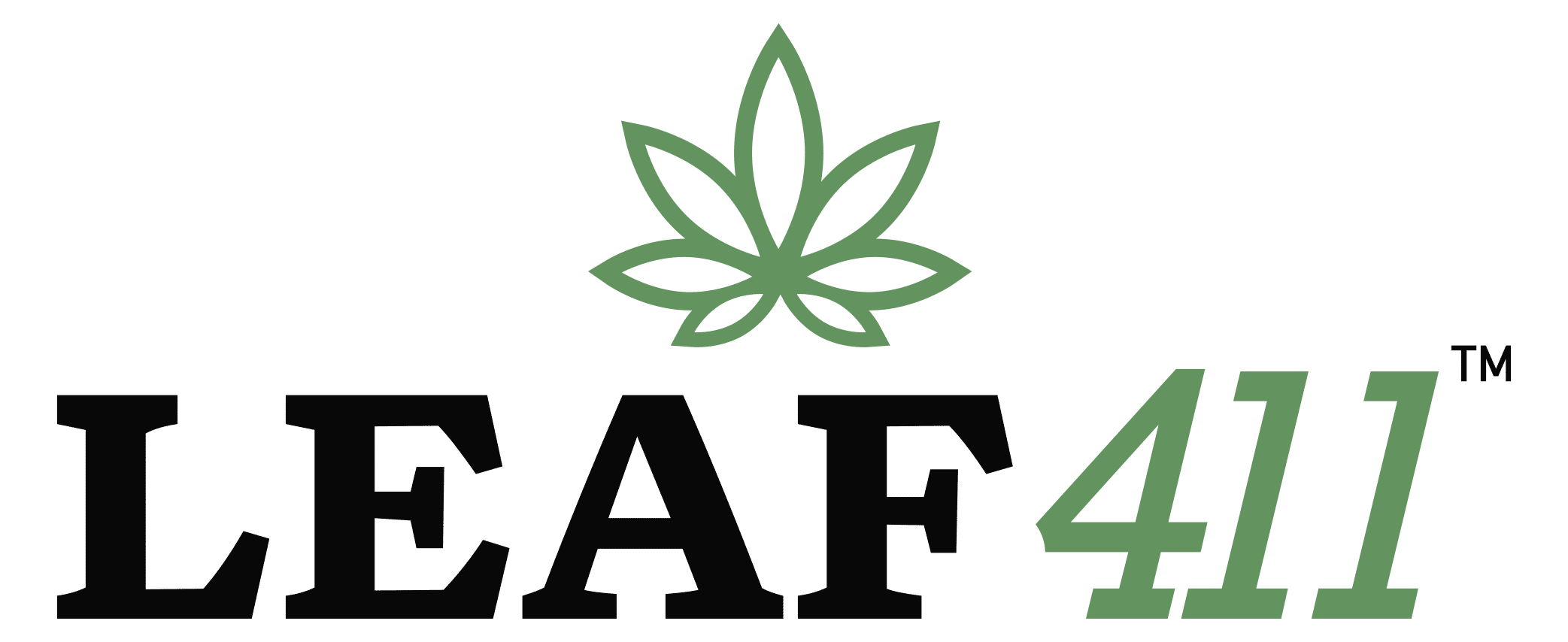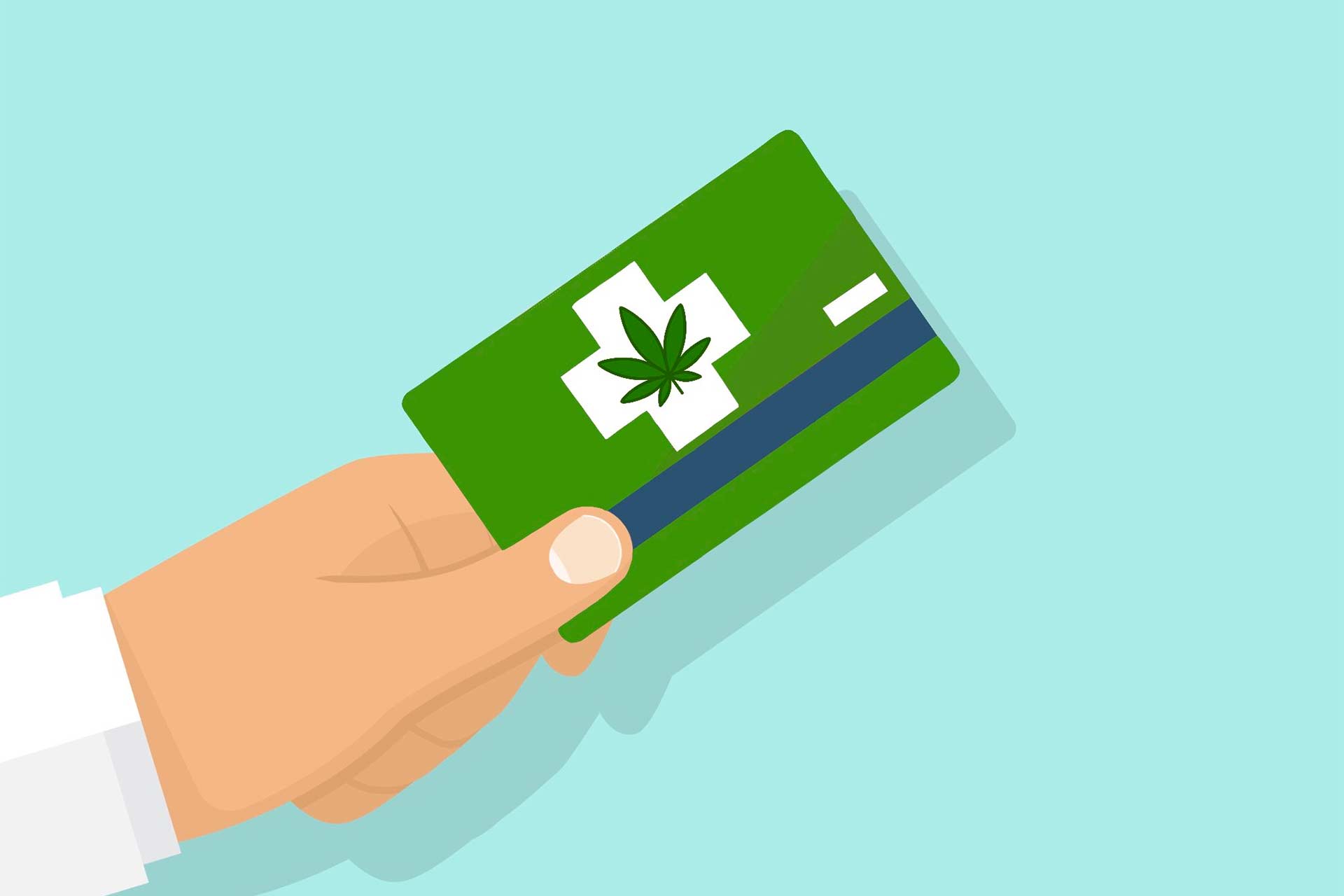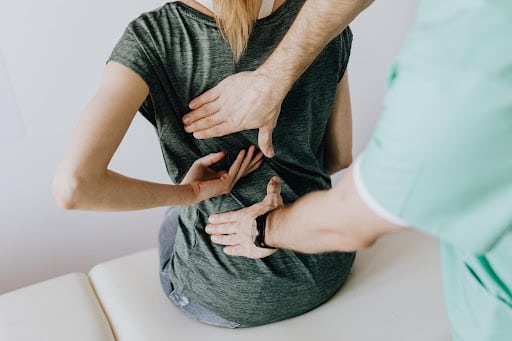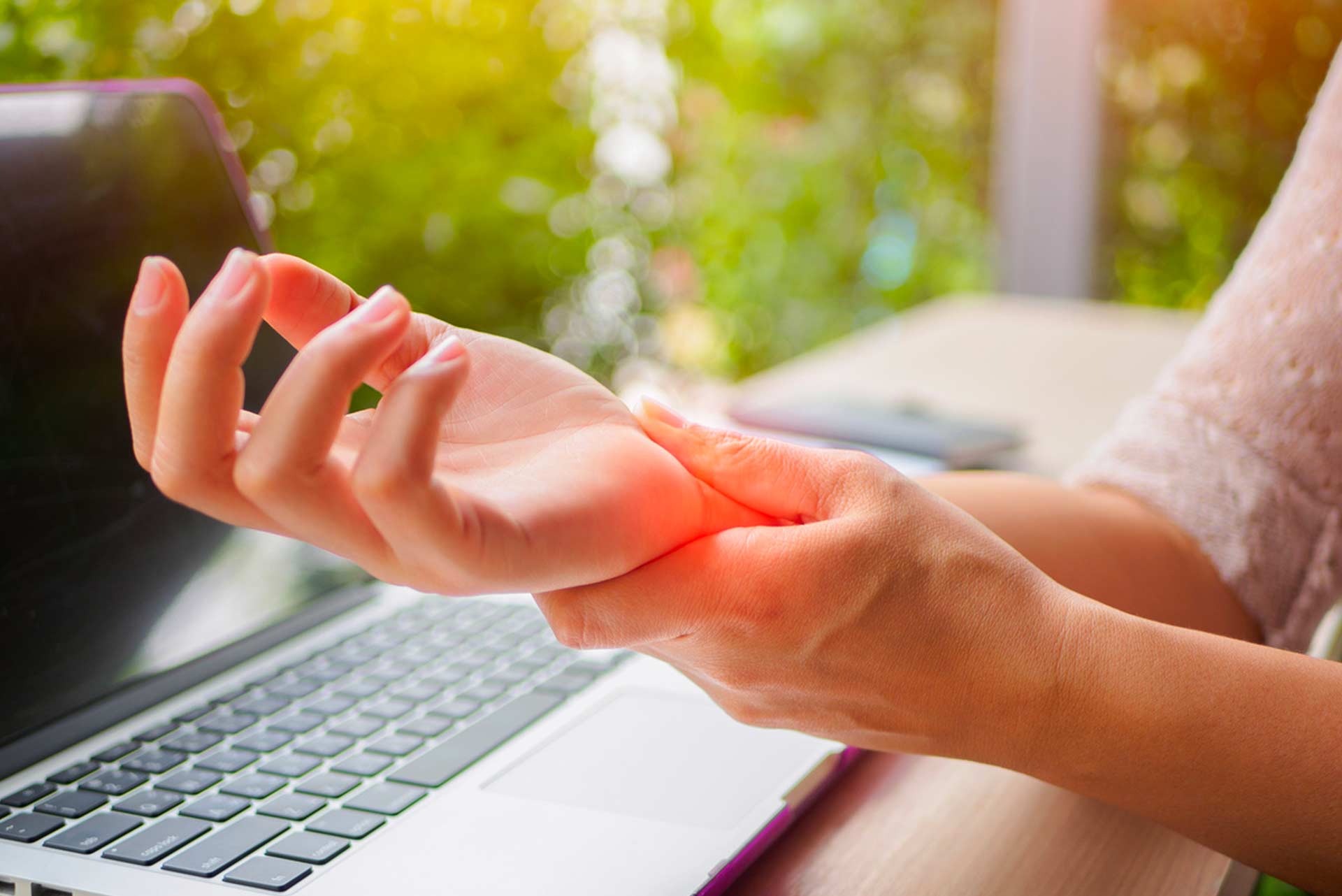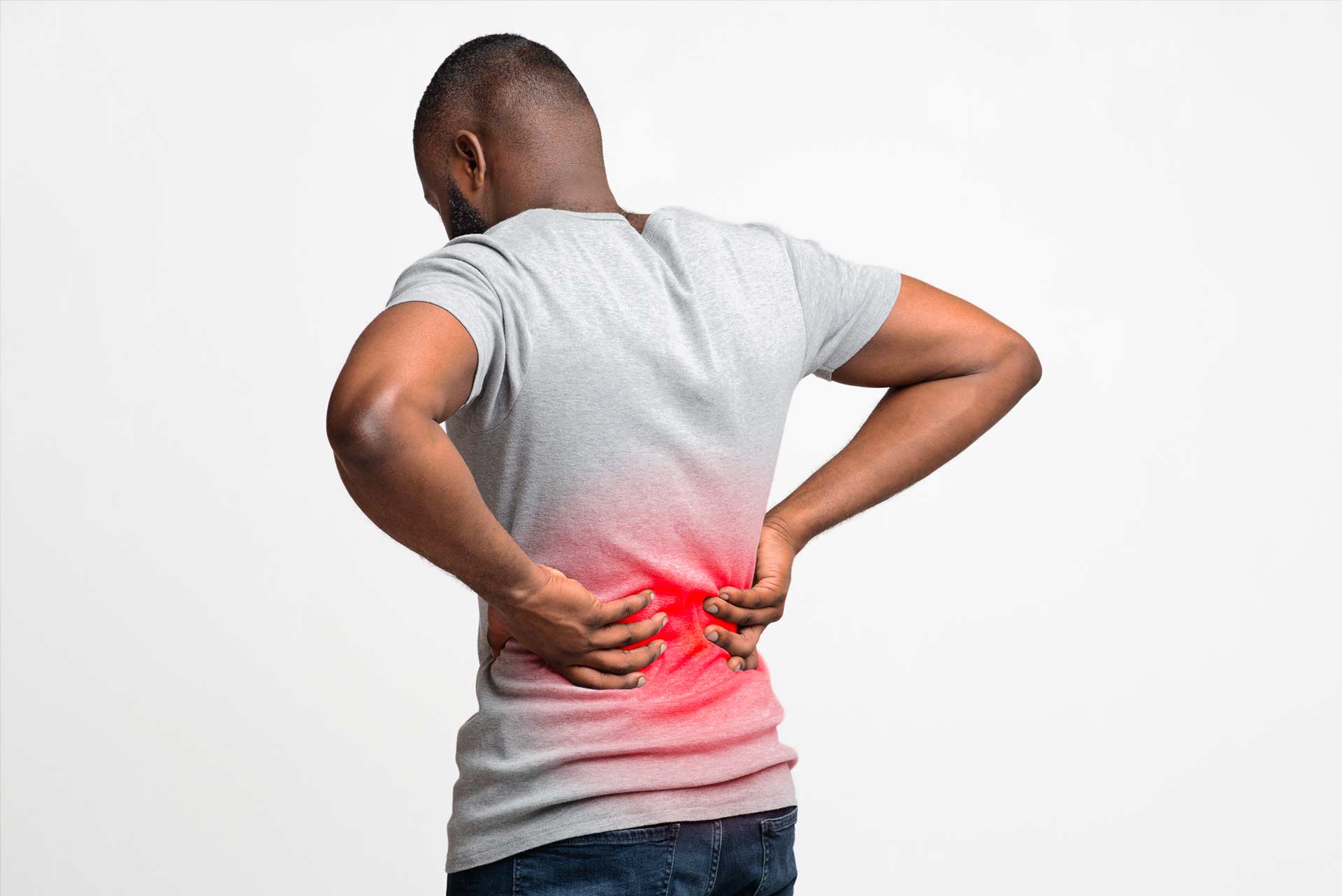Do You Need a Medical Marijuana Card?
By Katherine Golden, RN – Founder and CEO of Leaf411
“Should I get a medical marijuana card?” We hear that question a lot on the Leaf411 cannabis nurse hotline, as callers seek out the best way to access legal cannabis.
We can help you sort out your options based on your needs as well as what options exist where you live. Check out our Leaf library for your state’s current cannabis laws.
Is Legal Recreational Marijuana an Option for You? Then You Might Not Need a Med Card
Many of our callers are just starting out using cannabis and only require small doses of THC. Lower dose products are more easily found in recreational dispensaries. You don’t need a medical marijuana card (often called an “MMJ card” or “med card”) to visit adult use or recreational (rec) dispensaries. However, you’ll need a state-issued ID as proof that you are 21 or older.
Also, it’s worth noting that cannabidiol (CBD hemp) containing less than 0.3% THC is federally legal. CBD hemp (may also CBDa, CBN, and CBG) products are available over-the-counter and online in nearly every state, no med card required! Check out a list of Leaf411 nurse vetted Hemp members here.
If you’re just starting out with cannabis and live in a fully legal state that has both rec and medical marijuana, we suggest reaching out to a cannabis-trained clinician first for advice on the best routes, ratios and products. Our Leaf411 hotline is the perfect first-step resource!
In many cases, these products will be available to you without a med card, saving you both the time and cost of applying for a card.
David Gordon, MD, a Leaf411 advisory board member and integrative medicine practitioner notes that, “In Colorado, a lot of the products that we might use for medicinal purposes are only available on the rec side. Companies aren’t making as many products for the medical side because it’s not as profitable.”
While it can be challenging to find products made specifically for the medical market, there are brands that do a great job creating products specifically for medical use. One of our supporting members, Wana Brands, is a great example.

Understanding Med Card Qualifications
Before we get into cases when a med card makes sense, it’s important to talk about the qualifications for getting a medical marijuana card. Covered conditions vary from state to state. For example, in Colorado, the state list includes specific disabling or debilitating conditions. Oklahoma, on the other hand, is one of the least restrictive states. Their law leaves it up to the doctor to determine if cannabis is a good treatment option.
Check this link for an updated list of different states’ qualifying medical conditions.
When a Med Card Makes Sense
Some states only legalized medical marijuana, not recreational use. If you live in one of these states, then your only option for accessing legal cannabis is by qualifying for a med card.
Med cards are also the only option for people under the age of 21 to access legal cannabis.
It’s important to know what a med card gets you, as well as what protections it does not provide (you might be surprised!).
What a Med Card Provides in Some States
- Access to products at lower cost than recreational dispensaries
- Lower sales taxes when buying at a medical dispensary
- Higher doses and higher limits on how much you can buy in a day
- The ability to legally grow your own cannabis for personal use in some (but not all) states
What the Med Card Doesn’t Do
It’s important to remember that all marijuana—medical and recreational—remains federally illegal, even when legalized at the state level.
- A med card doesn’t give you the right to smoke in your rental if prohibited by lease
- A med card doesn’t prevent your employer from firing you for positive drug test results.
- Holding a med card may disqualify you from certain jobs or impact your career or educational options, though many states are also enacting legislation on this front.
Other Considerations Before Getting a Med Card
Will a med card restrict your right to own firearms? The answer is tricky.
Cannabis is federally illegal, and the feds oversee gun licensing and ownership. By the letter of the law, anyone using a federally illegal drug, or addicted to an illegal drug, is prohibited from owning or buying firearms.
If you’re buying a gun, you typically must complete a background check—specifically, the Firearms Transaction Record, or Form 4473. This form includes a question specific to marijuana use, and reinforces the federal prohibition, asking:
Are you an unlawful user of, or addicted to, marijuana or any depressant, stimulant, narcotic drug, or any other controlled substance?
Warning: The use or possession of marijuana remains unlawful under Federal law regardless of whether it has been legalized or decriminalized for medicinal or recreational purposes in the state where you reside.
In other words, if you answer truthfully (and you should—lying on Form 4473 is considered a felony offense!), then your background check may fail.
At Leaf411, we’re nurses, not lawyers. We recommend that you consult with an attorney if you have concerns about whether your cannabis use will impact your right to own or buy firearms.
A number of law firms now specialize in marijuana law. In fact, our board member David Wunderlich, Esq., Senior Attorney at McAllister Garfield, P.C., played a key role in improving Colorado’s laws around medical marijuana, and regularly speaks on cannabis and hemp issues.
Medical marijuana use may also impact state-administered public assistance benefits such as Temporary Assistance to Needy Families (TANF) in states that drug test welfare recipients. Interestingly, in Missouri, having a med card can actually protect your benefits. However, the rules vary from state to state and are frequently being updated. We strongly suggest you ask your social service agency whether holding a med card would impact your public assistance benefits.
How to Apply for a Med Card
You’ve weighed the pros and cons, as well as options available in your area, and have decided to get a med card. Where do you start? Search online using “med card” and your state to find state-specific information for obtaining a medical card in your area.
- Check your eligibility, making sure you have a qualifying medical condition.
- Confirm any special requirements, such as if you’re applying as the legal representative of another adult or someone under 18.
- Note the process for obtaining a card, including required fees. In some cases, discounts may be available for specific patient groups. For example, Oklahoma provides a discount to 100% disabled veterans.
- Find a doctor who provides medical marijuana evaluations. Your regular primary care provider may provide this service, though many primary care doctors may be unfamiliar with the med card evaluation process.
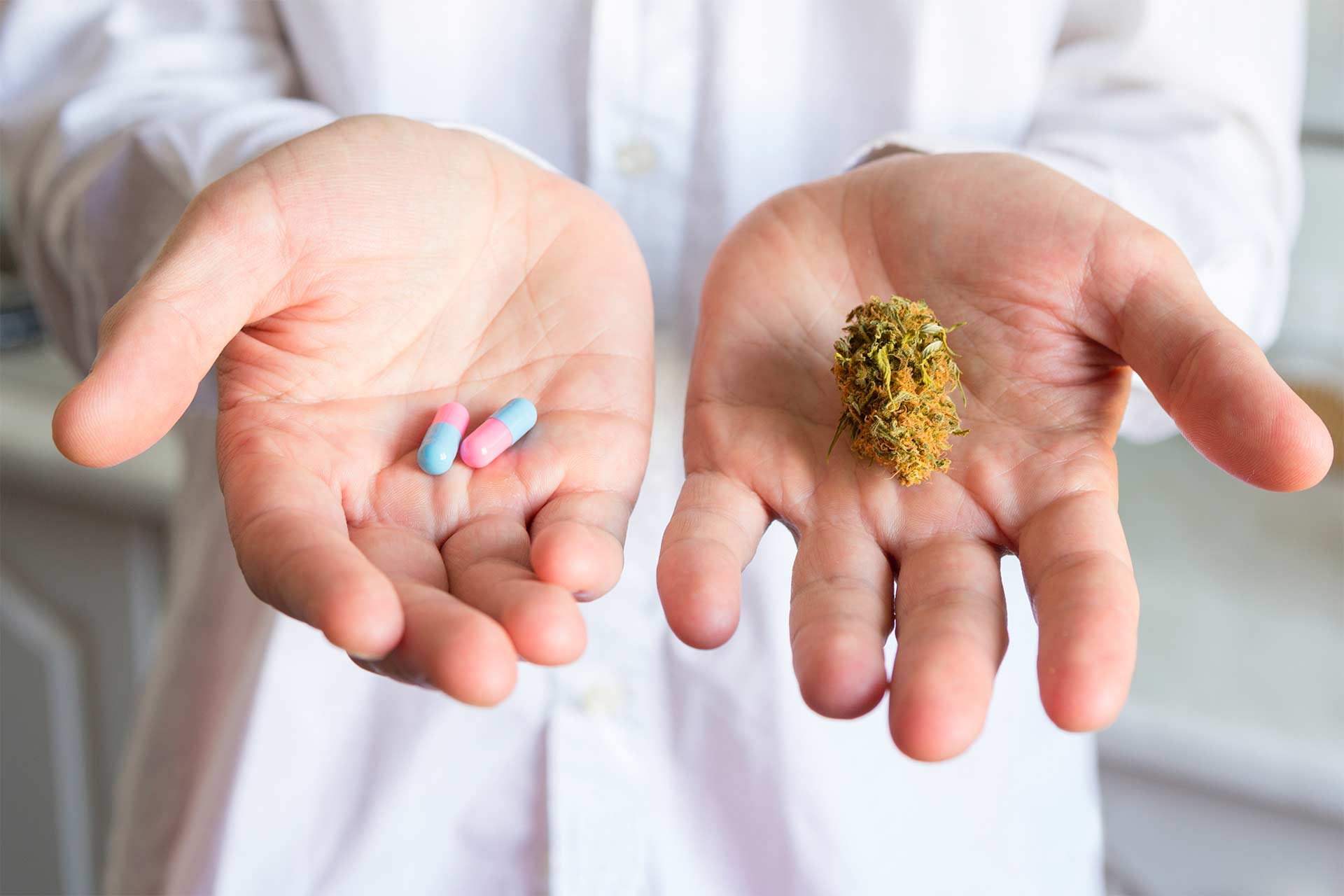
How a Med Card and a Prescription Are Different
You may think that the med card evaluation process will be a lot like getting a prescription from your primary care doctor. In fact, that’s rarely the case! The doctor’s certification simply tells the state that you qualify for a med card based on their assessment of your health history and conditions. It doesn’t tell you which products to start with or how much to take.
When you schedule a med card consultation, it’s worth asking whether the provider provides guidance on using cannabis to treat your health condition. If they do not, you may want to seek out a cannabis doctor who provides this service, such as Dr. David Gordon, who we recently interviewed or check out the Leaf411 vetted cannabis clinician on this page.
You can also reach out to a resource like the cannabis-trained nurses at Leaf411 for suggestions on where to start.
A Note for Patients Living in States Without Legal Cannabis
Cannabis containing over 0.3% THC remains completely illegal in 17 states. However, federally-legal CBD hemp products containing less than 0.3% THC are legal in almost all states. Full spectrum CBD hemp products contain many beneficial plant compounds shown to impact a variety of health conditions. In fact, even in states with legal cannabis, we sometimes suggest starting with CBD hemp products for certain health concerns.
At Leaf411, our cannabis nurses emphasize the safe legal use of cannabis. When you call, we listen to your specific needs and concerns. We will help find options and guide you to resources that best fit your lifestyle and health goals.
The Leaf411 cannabis nurse hotline, chat and scheduled nurse guidance call services provide education and directional support to the general public about the safe use of legal cannabis. We partner with select business members who meet our rigorous standards to extend our education and outreach efforts.
How Cannabis May Help with Different Types of Pain
From acute to chronic pain, cannabis can be a path towards restored function
By Katherine Golden, RN – Founder and CEO of Leaf411
Much like any other medicine, cannabis is not a magic pill, it is a tool. From the available research and our own experiences working with patients, we have found that the cannabis plant may be an effective alternative or adjunct therapy to potentially lower the doses of opiates or nonsteroidal anti-inflammatory drugs (NSAIDs) like ibuprofen and acetaminophen that can cause unwanted side effects.
Cannabis Can Be a Powerful Tool For Pain
When it comes to pain, everyone is different. How you experience pain, as well as your pain tolerance level, is shaped by a lot of different factors. In the same way, people respond to medicines differently.
Cannabis is emerging as a different option, proving to be a powerful new tool for managing pain. The cannabinoids in the cannabis plant, especially cannabidiol (CBD) and tetrahydrocannabinol (THC), have been shown to reduce inflammation and pain. Other cannabinoids (CBDa, THCa and CBG) plus plant compounds like terpenes may also play a role in reducing pain.
Federal restrictions in the United States continue to limit research on how cannabis impacts pain. However, other countries such as Israel have completed considerable research on cannabis’s therapeutic benefits.
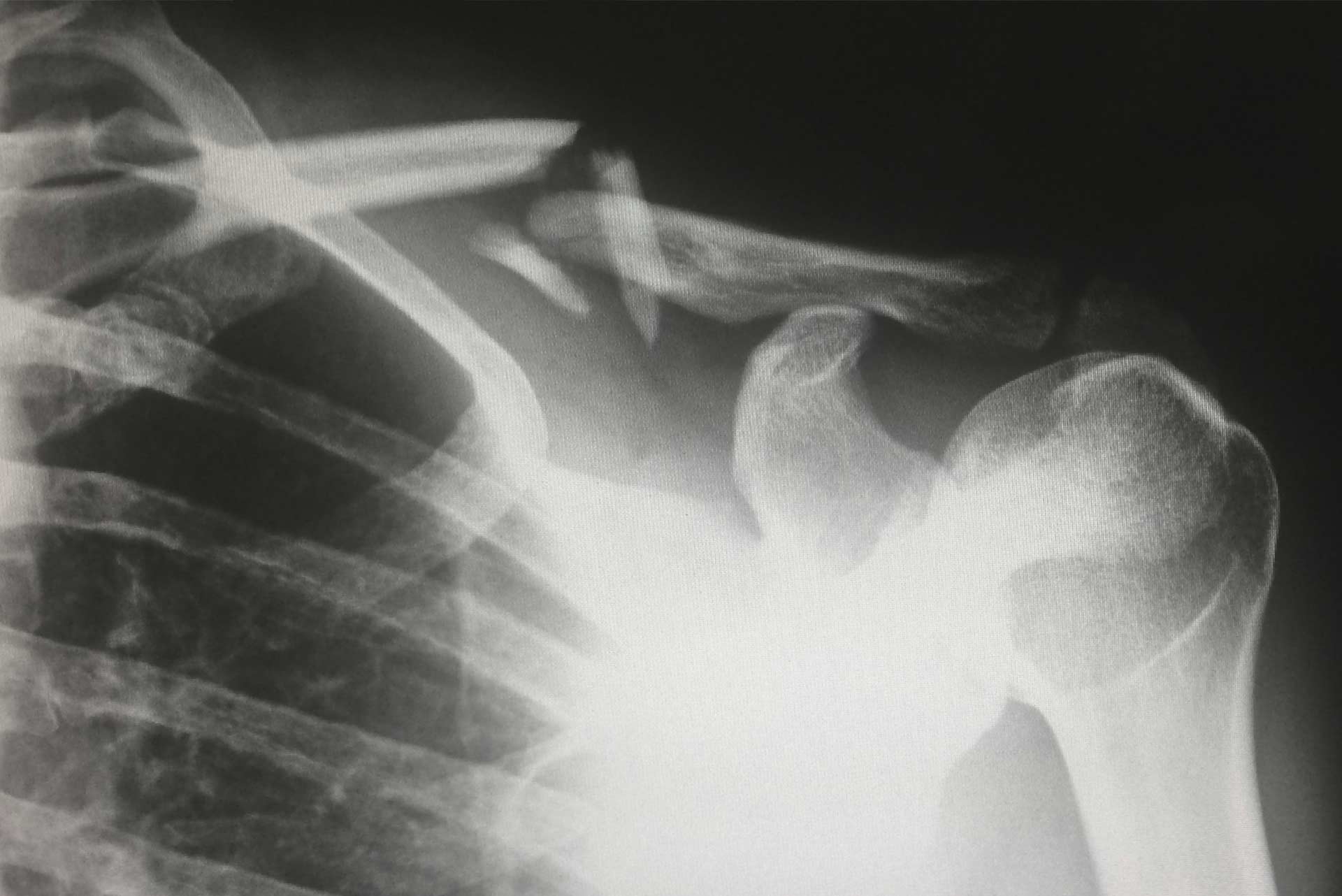
What Are the Different Types of Pain?
Understanding the different types of pain and their sources can help you find the best cannabis options.
- Acute pain usually comes about as the result of an injury, overuse, or medical procedure. While the initial pain can be mild or severe, it gets better over time as your body heals. Slamming your finger in a door results in acute pain. Post-workout soreness, broken bones and surgery recovery also fit into this category.
- With chronic pain, “the pain itself becomes the disease,” explains Eduardo Fraifeld, MD. Doctors typically categorize pain lasting over 3-6 months as chronic pain. Chronic pain can be associated with arthritis, migraines, diabetes or multiple sclerosis (MS), among other conditions. It can also be a side effect of chemotherapy or other long-term medical treatments. In addition, when an injury heals yet the pain remains, that fits the description for chronic pain.
Pain can also be broken down into the following categories:
- Nociceptive pain: Pain in soft tissues, tendons or joints caused by injury, overuse, stress or illness. Arthritis and other types of inflammatory pain also fit in this category. Nociceptive pain tends to get better over time, except for arthritis. With this type of pain, inflammation triggers nearby nerves, resulting in aching or throbbing pain.
- Neuropathic pain: Neuropathic pain, or nerve pain, originates in the nervous system. This type of pain is chronic in nature. It often feels like pins and needles, an electric shock, or a burning sensation. Some common causes of neuropathic pain are carpal tunnel syndrome, sciatica, diabetes, and chemotherapy.
- Nociplastic pain: Is a relatively new category for pain that doesn’t fit well into the other two categories. Fibromyalgia, non-specific low back pain and irritable bowel syndrome are a few examples. Also, pain associated with and exacerbated by centralized and peripheral sensitization is an example of nociplastic pain.
THC or CBD? It Depends on the Person and the Type of Pain
Cannabis plant compounds (cannabinoids) work on the CB1 and CB2 receptors in your body’s endocannabinoid system.
Everyone’s endocannabinoid system is different, just like everyone has their own pain tolerance levels. Keep this in mind if a product ends up not working for you, there may be a better product or dose for you. You can always call our registered nurses at Leaf411 for guidance.
CBD: Many people successfully use CBD products to reduce inflammation-based pain. Full spectrum products containing all the plant compounds, including some amount of THC (including CBD hemp that has THC, tend to be the most effective. Primarily because minor cannabinoids, terpenes, flavonoids and essential fatty acids work together to create the “entourage effect.”
By helping to reduce inflammation, CBD may indirectly help reduce pain. However, it doesn’t bind directly to the receptors that control pain like an opioid does. For that, you need a different cannabinoid, THC.
THC: A lot of people immediately rule out products with THC because they’re concerned they will become impaired or “high.”
It’s important to know that small amounts of THC may have little to no impairing effects. At the same time, THC—even small amounts—can be a gamechanger when it comes to pain.
THC can act on the same receptors in your body that opioids do. However, you don’t get some of the problematic side effects that opioids can bring—nausea, constipation, and risk of physical addiction.
Cannabis plant compounds (cannabinoids) work on the CB1 and CB2 receptors in your body’s endocannabinoid system.
Everyone’s endocannabinoid system is different, just like everyone has their own pain tolerance levels. Keep this in mind if a product ends up not working for you, there may be a better product or dose for you. You can always call our registered nurses at Leaf411 for guidance.
CBD: Many people successfully use CBD products to reduce inflammation-based pain. Full spectrum products containing all the plant compounds, including some amount of THC (including CBD hemp that has THC, tend to be the most effective. Primarily because minor cannabinoids, terpenes, flavonoids and essential fatty acids work together to create the “entourage effect.”
By helping to reduce inflammation, CBD may indirectly help reduce pain. However, it doesn’t bind directly to the receptors that control pain like an opioid does. For that, you need a different cannabinoid, THC.
THC: A lot of people immediately rule out products with THC because they’re concerned they will become impaired or “high.”
It’s important to know that small amounts of THC may have little to no impairing effects. At the same time, THC—even small amounts—can be a gamechanger when it comes to pain.
THC can act on the same receptors in your body that opioids do. However, you don’t get some of the problematic side effects that opioids can bring—nausea, constipation, and risk of physical addiction.
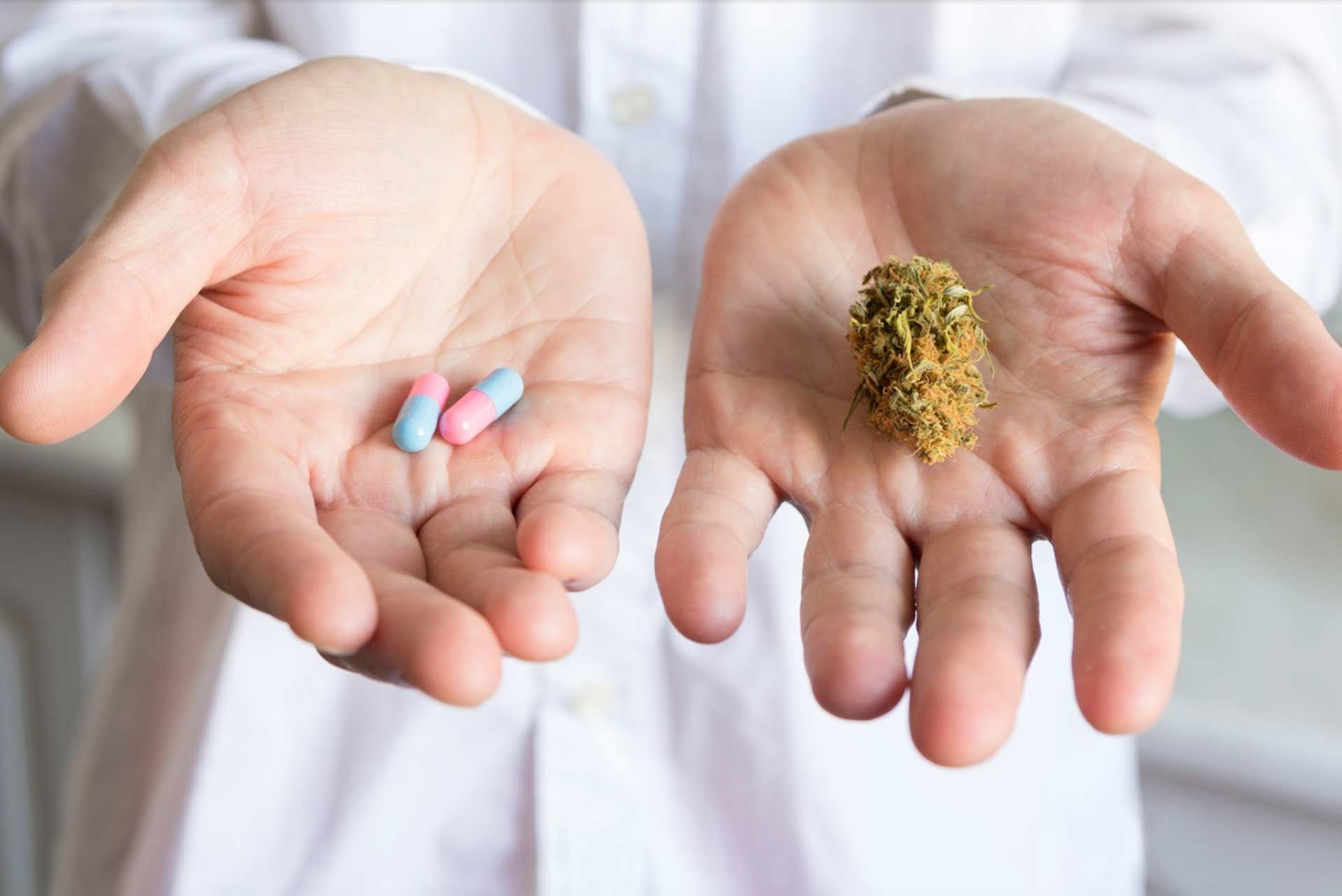
Cannabis Compared to Opiates
Ironically, long-term use of opioids for chronic pain can make you more sensitive to pain—an effect called opioid-induced hyperalgesia. What’s the recommended protocol in response to opioid-induced hyperalgesia? To wean off of opioids(with help from your prescribing physician) and find a safer alternative for managing pain. Interestingly, cannabis has shown promise on this front, based on emerging research.
Cannabis does not cause pain sensitization but in fact can help treat it. THC and other cannabinoids work through the same receptors that opioids do. However, the way that they reduce pain (their chemical process) is different.
Neuropathic pain is difficult to treat even with conventional pharmaceuticals. Generally, opioid use for chronic neuropathic pain is ineffective. One study considered the risk and benefits of opioids for the treatment of neuropathies. It stated that “long-term opioid therapy didn’t improve the functional status but rather was associated with a higher risk of subsequent opioid dependency and overdose.”

The Goal: To Restore Function
We wish that we could tell you that CBD or THC products will completely eliminate all pain. However, that is not the case. If there were a magic one-size-fits-all cure for pain, the pharmaceutical companies would have discovered and patented it!
Instead, we always set the goal to reduce pain to a manageable level and restore function. When you restore function, you open the possibility of adding on additional supportive activities such as exercise and relaxation that further promote healing.
Can’t wait to get started? Our Leaf411 quick question hotline and one-on-one scheduled nurse guidance calls are available now to answer your questions about using cannabis to manage pain. Call us at 844-LEAF411 (844-532-3411).
The Leaf411 cannabis nurse hotline provides education and directional support to the general public about the safe use of legal cannabis. We partner with select business members who meet our rigorous standards to extend our education and outreach efforts.
